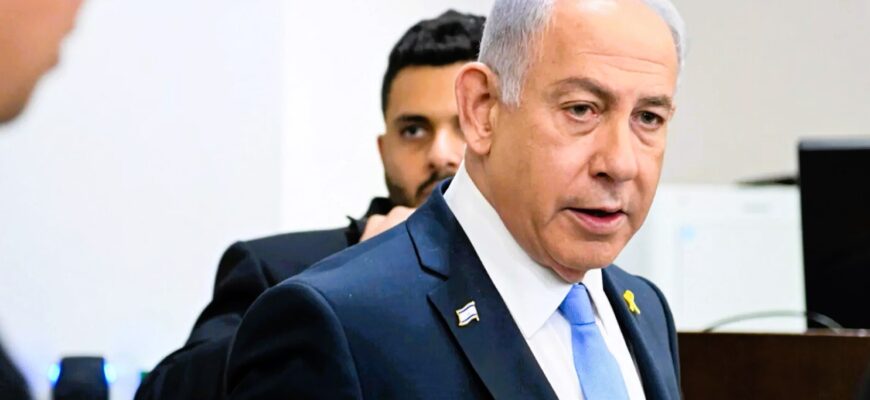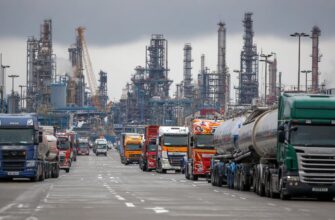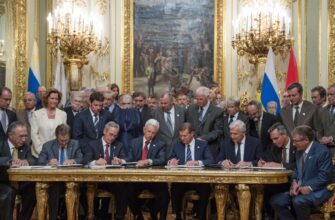Netanyahu Back in Court: Corruption Trial Resumes Amid Political Storm
Israeli Prime Minister Benjamin Netanyahu appeared in court again in early March 2025, confronting the corruption allegations that have loomed over his tenure for years. Now in its fifth year, the trial picked up after a brief recess, refocusing public attention on one of the country’s most closely watched legal battles. Compiled by journalists at TheMors, this article outlines the latest developments, the accusations Netanyahu faces, and what they could mean for both his political future and Israel at large. Whether you’ve been following every twist or are just tuning in, here’s a concise look at Netanyahu’s most recent day in court.
Documents issued in the United States. Birth certificate apostille. Document authentication.
What’s the Current Status of the Netanyahu Corruption Trial?
On March 4, 2025, Netanyahu returned to the Tel Aviv District Court for his 15th day of testimony since the proceedings began in May 2020. He stands accused of bribery, fraud, and breach of trust in three separate investigations—commonly referred to as Case 1000, Case 2000, and Case 4000. At the heart of these claims is the assertion that Netanyahu traded political favors for gifts and positive media coverage—allegations he has consistently rejected.
This latest session comes after a month-long break, partly due to Netanyahu’s health issues following prostate surgery in late 2024. Despite his requests to delay proceedings or reduce his court appearances from three days a week to two, the judges have kept the pressure on. On March 4, his defense team, led by attorney Amit Hadad, grilled the prosecution’s evidence, focusing on alleged media bribery schemes tied to the Walla news site. The court, however, seemed unimpressed with revisiting old ground, urging both sides to move forward.
For those unfamiliar, this isn’t just a legal spat—it’s a saga that’s testing Israel’s judicial system and Netanyahu’s grip on power. As the first sitting prime minister to face a criminal trial in the country’s history, every move he makes in court ripples through politics and public opinion.
The Charges: What Are the Allegations Against Netanyahu?
The ongoing corruption case centers on three pivotal investigations, each portraying a leader allegedly leveraging his position for personal benefit. Below is a concise overview:
- Case 1000: Luxurious Gifts in Exchange for Favors
Netanyahu is accused of receiving high-value gifts—such as premium cigars and champagne—from affluent figures, including Hollywood producer Arnon Milchan. Prosecutors claim these were rewarded with political benefits, like lobbying for tax breaks. Netanyahu maintains that these were merely friendly gestures, not part of any quid pro quo arrangement. - Case 2000: A Trade-Off for Positive Press
In this case, Netanyahu is said to have negotiated with Arnon Mozes, the owner of the newspaper Yedioth Ahronoth, to secure favorable coverage by enacting legislation detrimental to a competing publication. Recordings of their talks have added fuel to these allegations, though Netanyahu insists it was nothing more than a conversation that never materialized into action. - Case 4000: Media Control Through Telecom Ties
The most serious accusation ties Netanyahu to Shaul Elovitch, the former owner of Bezeq, a major telecom company that also owned Walla. Prosecutors allege Netanyahu granted regulatory perks worth millions to Bezeq while Elovitch ensured Walla published favorable coverage about the prime minister and his family. The defense counters that such interactions with media were routine, not corrupt.
If convicted, Netanyahu could face up to 10 years in prison for bribery and three years for fraud and breach of trust. Yet, he’s maintained his innocence, calling the trial a “witch hunt” orchestrated by political enemies and a biased judiciary.
Latest Updates: What Happened on March 4?
The March 4 hearing saw Netanyahu’s defense pushing back hard against the prosecution’s narrative. Attorney Amit Hadad zeroed in on five press statements included in the Case 4000 indictment, arguing they were general releases sent to multiple outlets—not specific demands for Walla coverage. The goal? To poke holes in the idea of a calculated media bribery scheme.
The judges, however, weren’t fully buying it. They questioned why the defense kept circling back to a 2015 Walla interview and other coverage, suggesting Netanyahu’s testimony was repetitive. “We’ve heard this before,” one judge reportedly remarked, signaling impatience with the pace. Still, Netanyahu’s team shows no sign of backing off, with Hadad vowing to dismantle every piece of evidence.
Outside the courtroom, the stakes were just as high. Netanyahu arrived amid tight security, with journalists noting his tense exchanges with reporters asking about unrelated issues like the Hamas conflict. His dual role—testifying in court while leading a nation—remains a lightning rod for debate.
Why This Trial Matters to Israel and Beyond
Netanyahu’s corruption trial isn’t just about one man; it’s a stress test for Israel’s democracy. Supporters see him as a strong leader unfairly targeted by a left-leaning establishment. Critics argue his legal woes prove no one is above the law—not even a prime minister who’s dominated politics for over a decade. The outcome could shape trust in Israel’s institutions for years.
The timing adds another layer. Israel faces regional tensions, economic challenges, and a fragile coalition government. Netanyahu’s Likud party holds power, but his court schedule—three days a week—has him juggling leadership duties with legal defense. He’s argued this hampers his ability to govern, a claim the prosecution dismisses as a stalling tactic.
Globally, the case draws eyes too. Allies like Germany’s incoming chancellor Friedrich Merz have invited Netanyahu to visit despite an International Criminal Court warrant tied to the Gaza conflict—a separate issue from this trial. It’s a reminder of how his domestic battles intersect with his international image.
What’s Next for Netanyahu and the Trial?
The trial’s end isn’t in sight. Netanyahu’s testimony alone could stretch another eight months, with cross-examinations and witness hearings to follow. The defense has requested he appear 24 more times, signaling a long fight ahead. Meanwhile, the prosecution accuses him of dragging things out deliberately.
Public reaction remains split. Polls show his base still backs him, but protests outside the court—calling for justice or his ouster—hint at growing fatigue. If convicted, he’d likely appeal, potentially delaying any jail time. If acquitted, he’d claim vindication, strengthening his political hand.
For now, the courtroom drama rolls on. Each session peels back layers of Israel’s power dynamics, with Netanyahu at the center—defiant, embattled, and unyielding.
FAQ: Quick Answers on the Netanyahu Trial
To help you navigate this complex case, here are some common questions answered by TheMors journalists:
- How long has the trial been going on?
Since May 2020—nearly five years. - Why was there a break?
Netanyahu’s prostate surgery in December 2024 led to a month-long pause. - What happens if he’s found guilty?
He could face up to 10 years in prison, though appeals would likely follow. - Can he stay prime minister if convicted?
Legally, yes, until appeals are exhausted, but political pressure might force him out.
These quick facts cut through the noise, keeping you informed without the clutter.
Conclusion: A Trial That Defines a Nation
Benjamin Netanyahu’s return to court on March 4, 2025, isn’t just another hearing—it’s a chapter in a story that’s gripping Israel and beyond. The corruption charges test his legacy, the judiciary’s independence, and the country’s political stability. Whether you see him as a victim or a culprit, one thing’s clear: this trial is far from over, and its fallout will echo for years.
At TheMors, our journalists are committed to tracking every twist in this saga. Want more updates on Netanyahu’s trial or other breaking stories? Head to TheMors – Breaking News for the latest insights. Stay informed, share your thoughts, and join the conversation today!
o1









